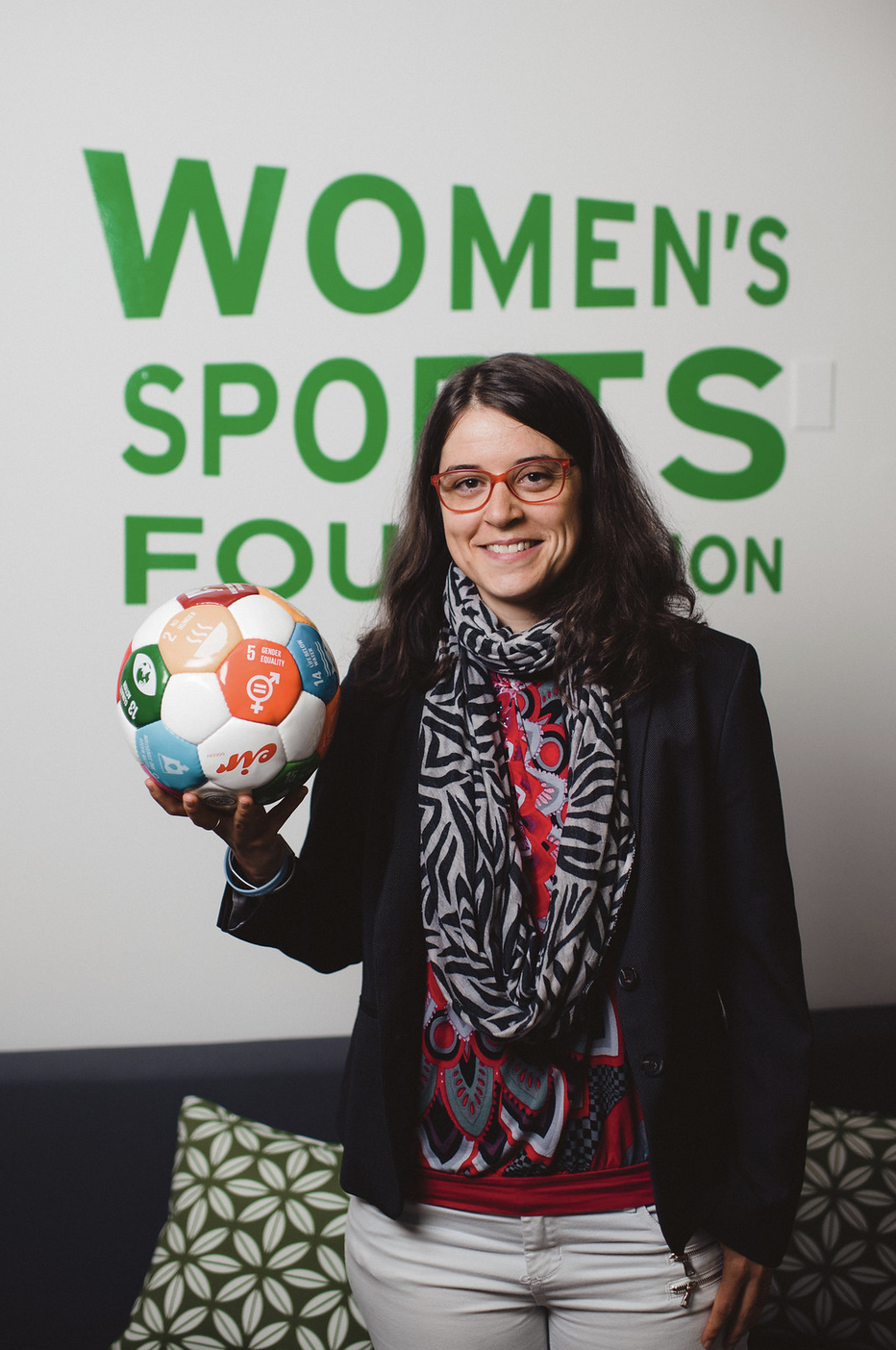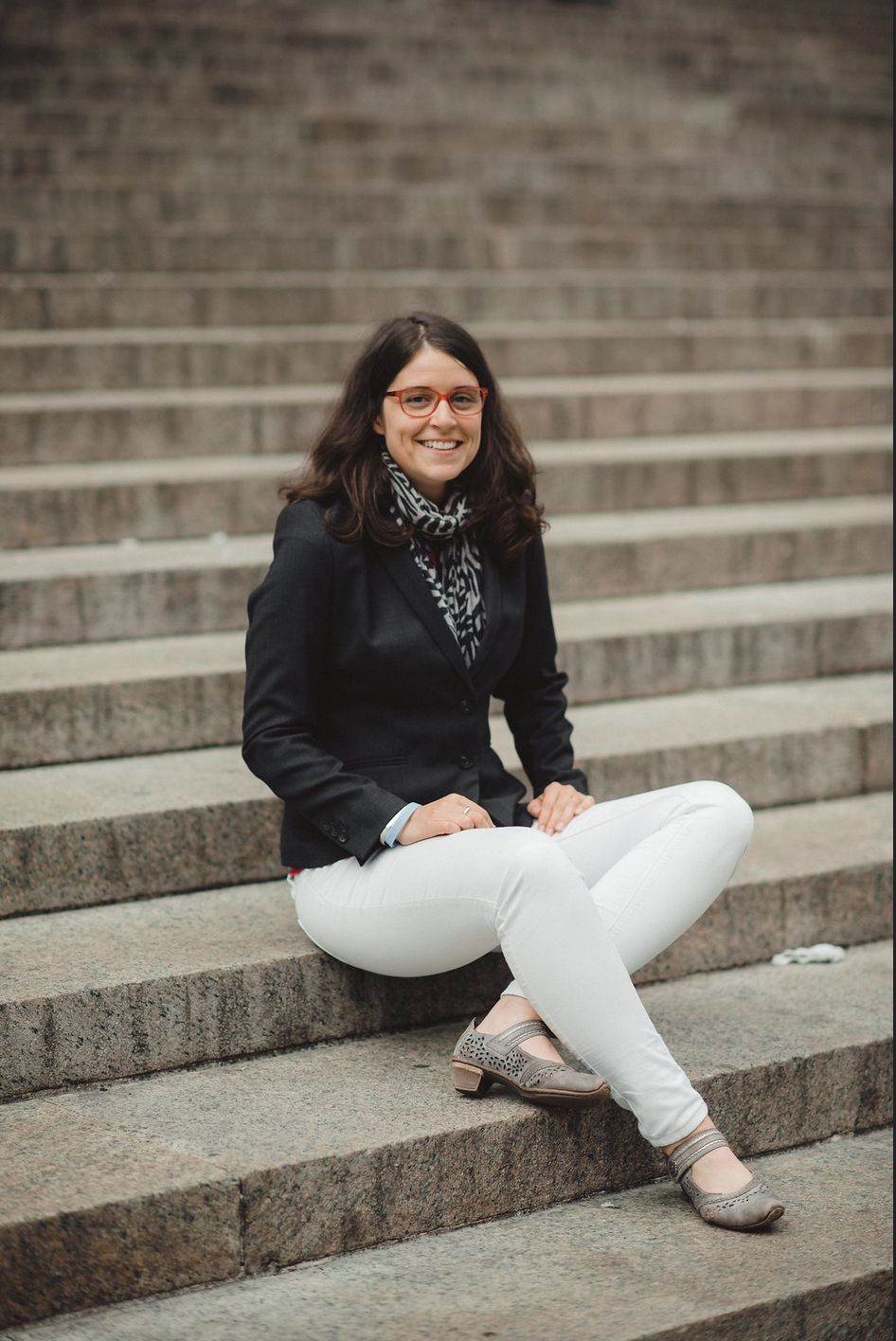
As a shy little girl in the rural village of Haute-Rivoire, France, Carole Ponchon was never known to have a teddy bear that she loved to bits, preferring instead to take a soccer ball to bed with her. From a very young age, she had her heart set on getting onto the soccer field, though there was no league for her to join until the age of six. When she was finally old enough to sign up, she was the only girl on the team, but, rather than dampening her competitive spirit, this fueled it. “Imposing myself in a male environment was less a problem than a motivation,” says Carole. “I never felt stronger than when I would hear parents shouting from the sidelines, ‘C’mon, don’t get beaten by a girl!’” On the field, she felt transformed. When she laced up her cleats, the shy, bookworm side of Carole stayed on the bench. “[Soccer] was a way of expressing the wild part of me,” she says. “It helped me show people—and, more importantly, myself—that I could do anything.” At 13, Carole began playing goalkeeper for a women’s soccer team in another village, competing with players who were in their 20s and 30s. “Even as a child, I liked to face difficulties. Playing [soccer] helped me to build my identity, to free myself, and to channel my anger. On the field, I wasn’t the shy Carole, but the fierce Carole.”
“Sports help women and girls to show their own strength. Practicing sport as a woman, even if you don’t realize it, you gain knowledge of your inner-self, get out of your shell, and open minds and boundaries. You acquire self-esteem, confidence, respect for the rules and others around you, teamwork, and how to better deal with success and failures,” Carole says. But she recognizes how lucky she was, and that many girls are kept from throwing themselves into competition on the field. “In Western societies, we tend to believe that gender inequality exists only in developing countries,” she says. But there is still work to be done to open up access and increase acceptance for women in sports, and the coverage of women’s sports in France is not the same as it is for men—with the female athletes discussed and commented on in a different way and often held to higher standards. This is on top of the ever-present glass ceiling and an imbalance of family responsibilities.

For herself, Carole understood that she wouldn’t have a career as an athlete, but this didn’t lessen her enthusiasm for the game. She played throughout her studies; in 2009, she completed two Master’s Degrees: one in Marketing and Management from the ESC Troyes Champagne School of Management, and the other in Sports Management from the Université de Technologie de Troyes. In 2012, she retired from soccer, but her years of play had clearly demonstrated the significance—especially for women—of “all these soft skills that are transferable to work and daily life,” and she spent a lot of time thinking about the impact of sports on the trajectory of women’s lives. In 2013, she had an idea. It would start small, an initiative dealing with women, sport and the culture of movement, but would eventually grow into something much larger.
In 2017, Carole took part in the Global Sports Mentoring Program (GSMP). She traveled to New York City, where she was mentored by Women’s Sports Foundation CEO, Deborah Antoine, a longtime advocate of sports as a vehicle for social change. As Carole learned more about public campaigns, advocacy and sports governance, and was surrounded by “inspiring leaders,” a purpose began to take shape. “The GSMP experience was a revolution, a storm, a shifting moment in my life,” she says. When the storm passed, she took stock. “I had grown and cultivated my roots, my trunk was stronger, and I had a clear vision of the directions my branches should take. And what might be the most phenomenal change: I was no longer afraid of the flowers that would bloom in due course, and I accepted the impact I’d already had: that of giving shade to those in need of it.”

Upon her return in 2018, Carole founded BeInnovActiv’, which strives to “equip socially driven sport organizations and individuals with the relationships and resources they need to drive change locally.” To set individuals and organizations on the path toward meaningful change requires “a strong idea, a motor (Dream.), an acceptance of personal and collective possibilities (Believe.), and the development of skills put into action (Become).” Carole can see a long road ahead but also endless possibilities, and she has great faith in the power of her foundation’s mantra, “Dream. Believe. Become.”
During the exhilarating days of the GSMP, Carole told her fellow delegates that she would “show the world that sport is the best vehicle for women and girls to unleash their potential and empower their communities.” She continues to build on that promise, and she is working to bring the GSMP values to Europe. The project is called Support Women in achieving their Goal (SWinG), and the aim, she says, is “to facilitate and support aspiring women leaders in sport to effect change by achieving positions in sport’s governing bodies.” SWinG is gathering 10 European stakeholders across different sectors into a collaborative partnership and will run through 2022.
For Carole, a shy bookworm, a fierce goalkeeper, and now the founder of BeInnovActiv’ and SWinG, sport has always been a way to express herself and find her place, and her own empowerment came with “building the muscles of the inner coach, rather than listening to self-doubt.” Of sport itself, she says this: “it is a school for life, a cement for society, and a universal language.” As “an activist in service of a better world,” she will work to enrich the connections between education, civic duties, and sports. “Together, let’s move the needle, give everyone the keys to being active citizens, and fight to bring hope back to individuals and society.”